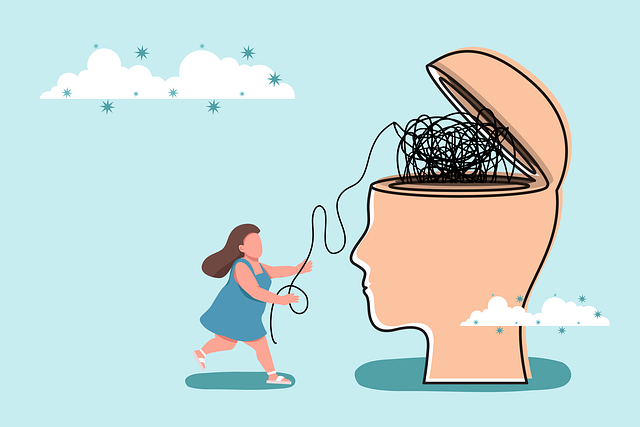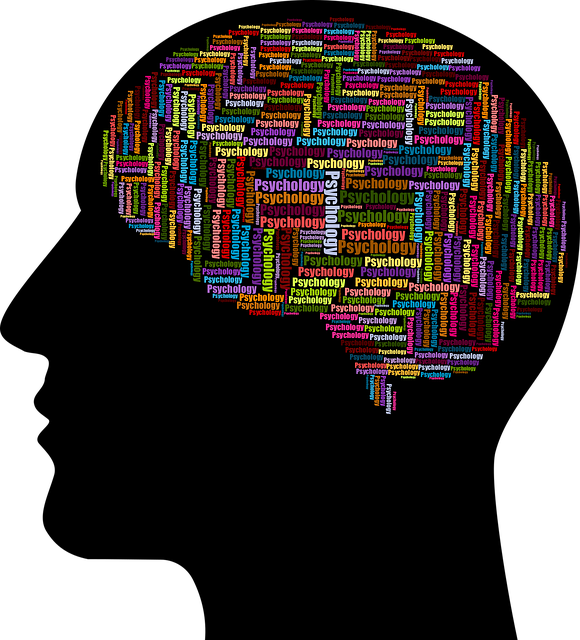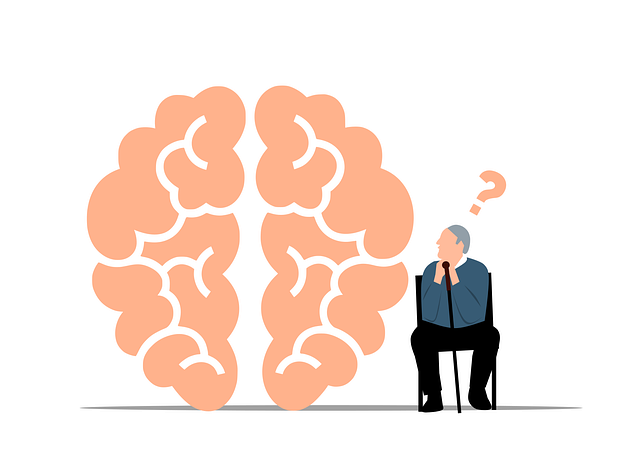Depression significantly impacts daily life, but early intervention through recognizing red flags like persistent sadness or changes in appetite can be crucial. Lone Tree Cognitive Behavioral Therapy (CBT) is an evidence-based approach that focuses on modifying negative thought patterns to effectively combat depression, without delving into the past. CBT encourages active engagement and goal-setting for clients, empowering them with practical strategies for real-time coping. Lifestyle changes including exercise, balanced nutrition, and adequate sleep, along with building social connections, are powerful tools in prevention. Lone Tree CBT, combined with empathy-building strategies, offers comprehensive tools to manage depression and promote overall well-being, fostering a supportive community where individuals feel less alone in their struggle.
Depression affects millions, but with proactive strategies, prevention is achievable. This article explores powerful tools and lifestyle changes to safeguard your mental well-being. From recognizing red flags of depression to leveraging evidence-based practices like Lone Tree Cognitive Behavioral Therapy, we provide a comprehensive guide. Learn how significant lifestyle adjustments and building supportive connections can combat loneliness and foster resilience. Embrace these strategies to enhance your overall mental health and happiness.
- Understanding Depression: Recognizing the Red Flags
- Lone Tree Cognitive Behavioral Therapy: A Powerful Tool
- Lifestyle Changes for Enhanced Mental Well-being
- Building a Support Network: Combating Loneliness
Understanding Depression: Recognizing the Red Flags

Depression is a complex mental health disorder that can significantly impact an individual’s daily life and overall well-being. Recognizing the red flags is the first step towards prevention, as early identification allows for timely intervention and effective treatment. The symptoms of depression vary from person to person, but common signs include persistent feelings of sadness, loss of interest in activities once enjoyed, changes in appetite or sleep patterns, fatigue, difficulty concentrating, and thoughts of worthlessness or suicide. These indicators can manifest as subtle shifts in behavior or more overt crises, making it crucial for individuals and their support networks to be vigilant.
Lone Tree Cognitive Behavioral Therapy (CBT) has proven effective in addressing depression by helping individuals identify and challenge negative thought patterns and behaviors. By fostering mental health awareness and cultural competency training among healthcare providers, burnout prevention strategies can also play a vital role in early intervention. Healthcare professionals equipped with these skills are better positioned to recognize the nuances of depression across diverse populations, ensuring tailored support and effective care.
Lone Tree Cognitive Behavioral Therapy: A Powerful Tool

Lone Tree Cognitive Behavioral Therapy (CBT) has emerged as a powerful tool in the arsenal against depression. This evidence-based approach focuses on identifying and modifying negative thought patterns, behaviors, and emotions that contribute to depressive symptoms. By promoting positive thinking, stress management, and emotional well-being promotion techniques, CBT offers individuals practical strategies to confront and overcome depression effectively.
Unlike traditional therapy that often explores the past, CBT centers on the present and future, teaching clients how to cope with challenges in real-time. Through structured sessions, individuals learn to recognize and challenge distorted thinking, engage in therapeutic activities, and acquire skills for problem-solving and stress reduction. This active and goal-oriented approach empowers individuals to take charge of their mental health and cultivate a more positive outlook on life.
Lifestyle Changes for Enhanced Mental Well-being

Lifestyle changes play a pivotal role in enhancing mental well-being and preventing depression. Incorporating regular physical activity, a balanced diet, and sufficient sleep into one’s routine can significantly reduce the risk of falling into a depressive episode. These simple yet powerful practices help regulate mood, boost energy levels, and improve overall resilience to stress. For instance, Lone Tree Cognitive Behavioral Therapy (LCBT) often emphasizes these lifestyle modifications as foundational components alongside evidence-based therapeutic techniques.
In addition to physical health, fostering social connections and cultivating compassion within the community contribute to a robust mental health safety net. Public Awareness Campaigns development and Compassion Cultivation Practices can empower individuals with the knowledge and skills to recognize early warning signs of depression in themselves and others. This proactive approach, combined with effective risk management planning for mental health professionals, ensures that support is readily available when needed, fostering a culture of empathy and resilience.
Building a Support Network: Combating Loneliness

Loneliness can be a significant trigger for depression, so building a strong support network is crucial. This involves cultivating meaningful connections with friends, family, or even communities that share similar interests or experiences. Whether it’s joining social clubs, participating in community events, or seeking professional help through Cognitive Behavioral Therapy (CBT), these strategies aim to combat feelings of isolation and provide a safety net during challenging times.
In today’s digital age, mental health policy analysis and advocacy have become more critical than ever, emphasizing the importance of empathy-building strategies. Mind Over Matter principles can be a powerful tool—encouraging individuals to challenge negative thoughts and replace them with positive affirmations. Such practices, alongside therapy, whether it’s talk therapy or CBT, offer practical ways to manage depression and promote overall well-being, ensuring that no one feels alone in their struggle.
Depression prevention is a multifaceted approach, and by understanding the signs and employing effective strategies, individuals can significantly improve their mental well-being. Lone Tree Cognitive Behavioral Therapy (CBT) has proven to be a powerful tool in combating depression, focusing on identifying and changing negative thought patterns. Alongside this therapy, adopting healthy lifestyle changes, such as regular exercise and mindful practices, can enhance resilience. Building a robust support network is also vital; connecting with others reduces feelings of loneliness and provides a safety net. Combining these strategies empowers individuals to take charge of their mental health and foster lasting positive change.














